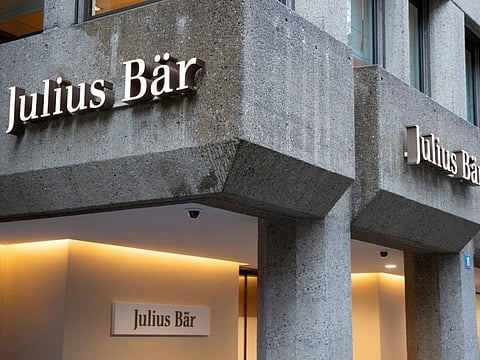Julius Baer seeks $250 million from world’s rich for buyout bets
Julius Baer raised $221 million for its vintage program last year

Zurich: Julius Baer Group is ramping up a private equity bet for its rich clients, joining a growing number of firms boosting their focus on alternative investments to help navigate the shifting macroeconomic landscape.
The Swiss bank plans to raise $250 million from clients for the largest fund yet under its flagship private equity program, according to marketing documents seen Bloomberg. That would take the total collected since the program began four years ago to about $731 million.
Money managers are increasingly looking beyond public markets for returns amid volatility and accelerating inflation. Last year, investment firms for rich individuals and families increased allocations to private markets and are set to do so again in 2023 as part of the biggest shake-up of portfolios in years, UBS Group said last month.
A representative for Julius Baer declined to comment.
The Zurich-based bank’s latest fund requires commitments of at least $125,000 and will mostly focus on small and medium-sized private equity firms raising between $350 million and $3.5 billion. It will also target direct co-investments and secondary opportunities in private markets.
Julius Baer raised $221 million for its vintage program last year and $144 million in 2021, more than double the sums from 2019 to 2020, according to the documents. Those funds have invested in firms including South Korea’s MBK Partners, US plant-based nutrition company Impossible Foods and London-based secondary deals firm Hollyport Capital. They had gross returns of as much as 27.4 per cent through September 2022.
Julius Baer CEO Philipp Rickenbacher said in an earnings call last year that the 2021 private equity vintage fund was “substantially oversubscribed.”
The bank has a team of about 16 professionals for its private markets platform, which started a decade ago and oversees about $5 billion in client commitments. It has hired bankers from Credit Suisse Group and UBS to help build out private market offerings in recent years.
Julius Baer managed about 424.1 billion Swiss francs ($468 billion) at year-end, making it the third-largest Swiss bank after Credit Suisse and UBS.
Sign up for the Daily Briefing
Get the latest news and updates straight to your inbox



